tri-n-dodecylamine
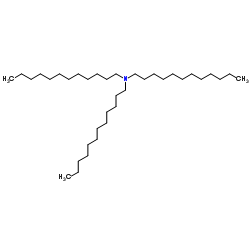
tri-n-dodecylamine structure
|
Common Name | tri-n-dodecylamine | ||
|---|---|---|---|---|
| CAS Number | 102-87-4 | Molecular Weight | 521.987 | |
| Density | 0.8±0.1 g/cm3 | Boiling Point | 544.6±0.0 °C at 760 mmHg | |
| Molecular Formula | C36H75N | Melting Point | 16 °C | |
| MSDS | Chinese USA | Flash Point | 256.6±18.4 °C | |
| Symbol |

GHS07 |
Signal Word | Warning | |
| Name | tridodecylamine |
|---|---|
| Synonym | More Synonyms |
| Density | 0.8±0.1 g/cm3 |
|---|---|
| Boiling Point | 544.6±0.0 °C at 760 mmHg |
| Melting Point | 16 °C |
| Molecular Formula | C36H75N |
| Molecular Weight | 521.987 |
| Flash Point | 256.6±18.4 °C |
| Exact Mass | 521.589966 |
| PSA | 3.24000 |
| LogP | 17.60 |
| Vapour density | >1 (vs air) |
| Vapour Pressure | 0.0±1.4 mmHg at 25°C |
| Index of Refraction | 1.460 |
| InChIKey | SWZDQOUHBYYPJD-UHFFFAOYSA-N |
| SMILES | CCCCCCCCCCCCN(CCCCCCCCCCCC)CCCCCCCCCCCC |
| Storage condition | 2-8°C |
| Symbol |

GHS07 |
|---|---|
| Signal Word | Warning |
| Hazard Statements | H315-H319-H335 |
| Precautionary Statements | P261-P305 + P351 + P338 |
| Personal Protective Equipment | Eyeshields;full-face respirator (US);Gloves;multi-purpose combination respirator cartridge (US);type ABEK (EN14387) respirator filter |
| Hazard Codes | Xi: Irritant; |
| Risk Phrases | R36/37/38 |
| Safety Phrases | S26-S36 |
| RIDADR | 2735.0 |
| WGK Germany | 2 |
| Hazard Class | 8.0 |
| HS Code | 2921199090 |
|
~53% 
tri-n-dodecylamine CAS#:102-87-4 |
| Literature: Journal of Organic Chemistry, , vol. 46, # 8 p. 1759 - 1760 |
|
~23% 
tri-n-dodecylamine CAS#:102-87-4 |
| Literature: Kunitake, Toyoki; Kimizuka, Nobuo; Higashi, Nobuyuki; Nakashima, Naotoshi Journal of the American Chemical Society, 1984 , vol. 106, # 7 p. 1978 - 1983 |
|
~0% 
tri-n-dodecylamine CAS#:102-87-4 |
| Literature: Pasek, Josef; Kostova, Nina; Dvorak, Bohumir Collection of Czechoslovak Chemical Communications, 1981 , vol. 46, # 4 p. 1011 - 1022 |
|
~2% 
tri-n-dodecylamine CAS#:102-87-4 |
| Literature: JAOCS, Journal of the American Oil Chemists' Society, , vol. 71, # 11 p. 1231 - 1238 |
|
~% 
tri-n-dodecylamine CAS#:102-87-4 |
| Literature: US2078922 , ; |
|
~% 
tri-n-dodecylamine CAS#:102-87-4 |
| Literature: Journal of Organic Chemistry, , vol. 9, p. 260,261 Iowa State College Journal of Science, , vol. 14, p. 64 Chem.Abstr., , p. 6220 |
|
~% 
tri-n-dodecylamine CAS#:102-87-4 |
| Literature: Journal of Organic Chemistry, , vol. 9, p. 260,261 Iowa State College Journal of Science, , vol. 14, p. 64 Chem.Abstr., , p. 6220 |
|
~2%
Detail
|
| Literature: JAOCS, Journal of the American Oil Chemists' Society, , vol. 71, # 11 p. 1231 - 1238 |
|
~% 
tri-n-dodecylamine CAS#:102-87-4 |
| Literature: Journal of the Chemical Society, , p. 201 |
| Precursor 9 | |
|---|---|
| DownStream 5 | |
| HS Code | 2921199090 |
|---|---|
| Summary | 2921199090 other acyclic monoamines and their derivatives; salts thereof VAT:17.0% Tax rebate rate:9.0% Supervision conditions:none MFN tariff:6.5% General tariff:30.0% |
|
Endothelin-1 regulates H⁺-ATPase-dependent transepithelial H⁺ secretion in zebrafish.
Endocrinology 155(5) , 1728-37, (2014) Endothelin-1 (EDN1) is an important regulator of H⁺ secretion in the mammalian kidney. EDN1 enhances renal tubule H⁺-ATPase activity, but the underlying mechanism remains unclear. To further elucidate... |
|
|
Functional characteristics of L1156F-CFTR associated with alcoholic chronic pancreatitis in Japanese.
Am. J. Physiol. Gastrointest. Liver Physiol. 309 , G260-9, (2015) Although cystic fibrosis is rare in Japanese, measurement of sweat Cl(-) has suggested mild dysfunction of cystic fibrosis transmembrane conductance regulator (CFTR) in some patients with chronic panc... |
|
|
A combined TDDA-PVC pH and reference electrode for use in the upper small intestine.
J. Med. Eng. Technol. 14(1) , 16-20, (1990) Incorporation of a ligand into polyvinylchloride allows the production of ion selective electrodes that are soft-bodied and disposable. With features make them especially suitable for clinical, partic... |
| TRI(N-DODECYL)AMINE |
| EINECS 203-063-4 |
| N,N-Didodecyldodecan-1-amine |
| tri-n-dodecylamine |
| 1-Dodecanamine, N,N-didodecyl- |
| Trilaurylamine |
| MFCD00008971 |
| TridodecylaMine |
| N,N-Didodecyl-1-dodecanamine |
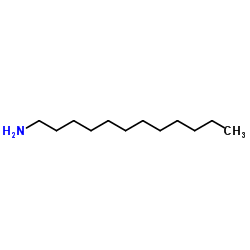

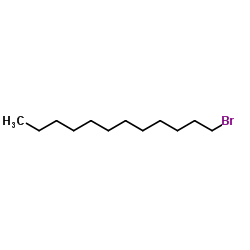
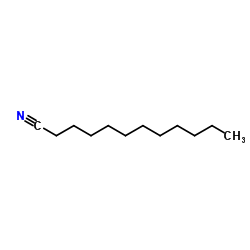

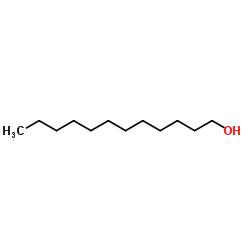




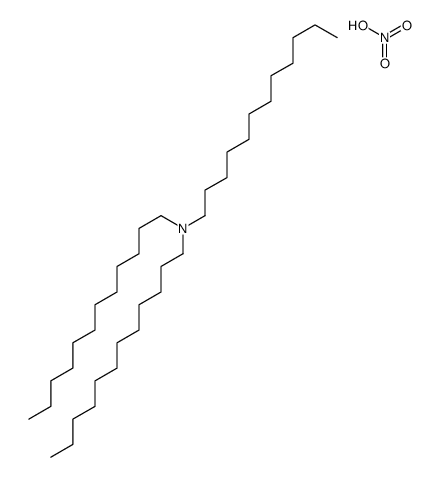 CAS#:2305-34-2
CAS#:2305-34-2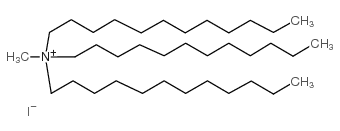 CAS#:29710-98-3
CAS#:29710-98-3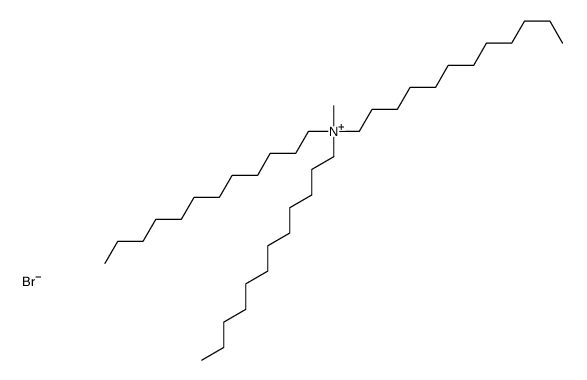 CAS#:29920-02-3
CAS#:29920-02-3 CAS#:2486-89-7
CAS#:2486-89-7
